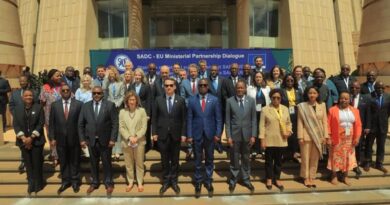CSPR Commends BoZ Rate Cut but Warns of Persistent Inflation Risks and Rising Poverty
The Civil Society for Poverty Reduction (CSPR) has welcomed the Bank of Zambia’s decision to reduce the Monetary Policy Rate (MPR) by 25 basis points. However, the organisation has warned that inflationary pressures, supply-side constraints and weak policy transmission continue to threaten vulnerable households that are already struggling with rising living costs.
In a comprehensive statement issued by the Executive Director, Isabel Mutembo Mukelabai, CSPR noted that the MPR adjustment announced by Bank of Zambia Governor Dr Denny H. Kalyalya on 12 November 2025 may stimulate household disposable incomes, private investment and wider economic growth.
She added that the rate change must be accompanied by stronger fiscal support and expanded social protection programmes if it is to benefit ordinary citizens.
CSPR was established in 2000 to strengthen civil society participation in the formulation and monitoring of Zambia’s National Development Plans. Mukelabai explained that the organisation views the MPR adjustment as significant in the current economic context.
According to her, the 2.5 percent reduction reflects a cautious easing stance that aims to support economic growth while preserving price stability. She highlighted that the policy’s success depends on lower borrowing costs for households and firms, improved credit conditions for productive sectors and better anchoring of inflation expectations through foreign exchange stability and food price adjustments.
CSPR pointed out that since 2022, Government has pursued what Mukelabai described as a highly ambitious inflation target of between 6 and 8 percent. This target was maintained even when inflation was on an upward trajectory, which resulted in a series of rate hikes from 9.25 percent in September 2022 to 14.5 percent in January 2025.
Although inflation has recently slowed from 14.1 percent in June to 12.39 percent in September and 11.9 percent in October, the organisation expressed concern that the average inflation forecast for 2025 has been revised upward to 13.8 percent. This upward revision has been attributed to a slower decline in food prices than anticipated.
Mukelabai said this poses a serious concern because many households are still failing to afford basic goods and services, which is worsening poverty levels. She noted that while the 3.6 million tonne maize bumper harvest and higher foreign exchange inflows from mining have helped lower inflation in recent months, supply-side risks remain elevated.
CSPR recognised the improvement in Zambia’s international reserves which now stand at 5.2 months of import cover, above the recommended minimum of three months. Mukelabai stressed that this improvement has been strongly supported by the International Monetary Fund’s Extended Credit Facility which began in 2022 and ends in January 2026.
She warned that Zambia will require alternative strategies to replace the foreign exchange support currently provided by the IMF facility, noting that the country remains heavily dependent on mining for foreign exchange earnings. This dependence leaves Zambia vulnerable to global commodity price movements and external shocks.
CSPR highlighted two possible outcomes of the MPR reduction.
First, reduced borrowing costs may provide short-term relief to households and small and medium enterprises by improving liquidity. Second, if the pass-through effect is strong and accompanied by enhanced social protection programmes, the policy may pave the way for a gradual recovery in investment, employment and poverty reduction.
However, Mukelabai warned that these benefits depend on effective policy transmission. She noted that commercial banks may continue to enforce high collateral requirements and aggressive risk pricing which would limit access to credit for small businesses.
She also warned of persistent inflation risks linked to power shortages, rising grain demand and Zambia’s dependence on imported fuel which remains exposed to international price volatility.
She stated that the 2.5 percent reduction in the MPR is encouraging but could create instability or currency depreciation if implemented at the wrong time.
CSPR concluded by urging Government to implement financial sector reforms that expand inclusive credit access. The organisation specifically called for targeted support for smallholder farmers, women-led enterprises and micro-entrepreneurs. It also recommended more flexible collateral requirements and longer loan tenures for productive investments.
Mukelabai stressed the importance of close monitoring of food prices so that policy adjustments can be made promptly to protect vulnerable households. She reaffirmed CSPR’s commitment to ensuring that economic policies contribute meaningfully to reducing poverty in Zambia.
She concluded that monetary policy interventions must be supported by strong fiscal and social protection measures in order for macroeconomic stability to translate into real improvements in people’s lives.



